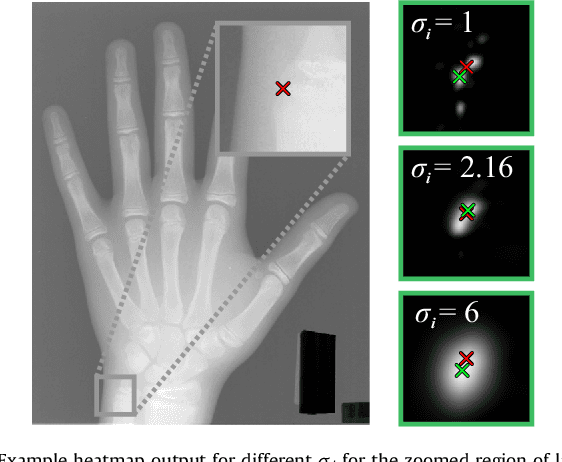Integrating Spatial Configuration into Heatmap Regression Based CNNs for Landmark Localization
Paper and Code
Aug 02, 2019



In many medical image analysis applications, often only a limited amount of training data is available, which makes training of convolutional neural networks (CNNs) challenging. In this work on anatomical landmark localization, we propose a CNN architecture that learns to split the localization task into two simpler sub-problems, reducing the need for large training datasets. Our fully convolutional SpatialConfiguration-Net (SCN) dedicates one component to locally accurate but ambiguous candidate predictions, while the other component improves robustness to ambiguities by incorporating the spatial configuration of landmarks. In our experimental evaluation, we show that the proposed SCN outperforms related methods in terms of landmark localization error on size-limited datasets.
 Add to Chrome
Add to Chrome Add to Firefox
Add to Firefox Add to Edge
Add to Edge